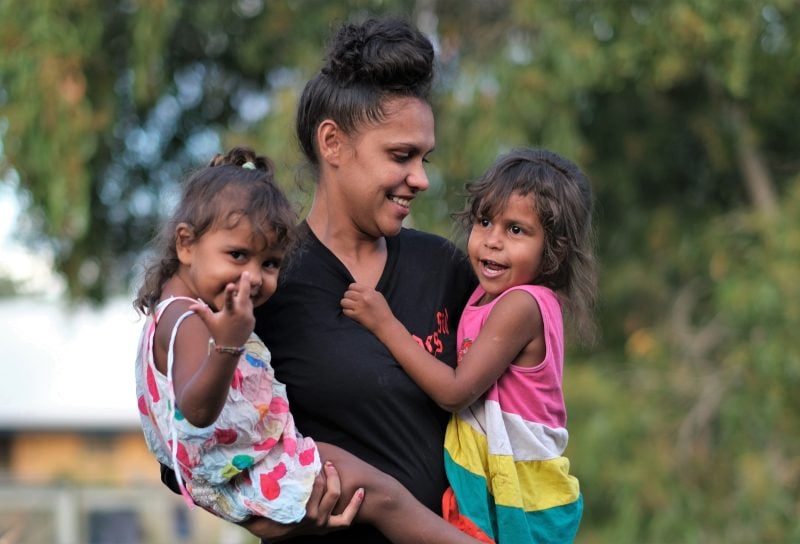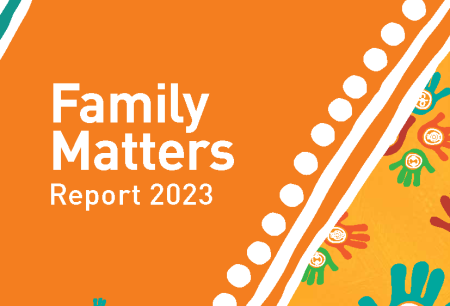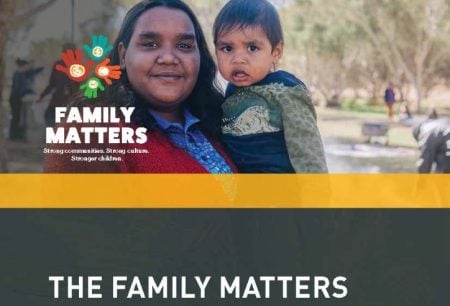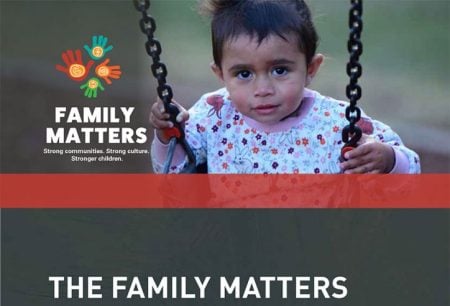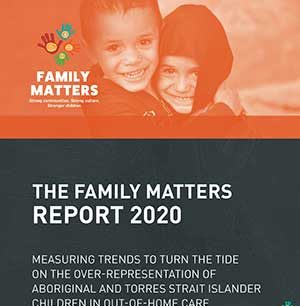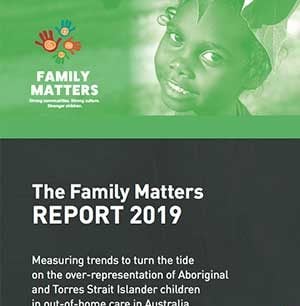Family Matters Report 2023
The annual Family Matters Report examines government actions to address the over-representation and the outcomes for Aboriginal and Torres Strait Islander children in child protection systems. It highlights Aboriginal and Torres Strait Islander-led solutions and calls on governments to support and invest in the strengths of Aboriginal and Torres Strait Islander peoples to lead on child wellbeing, development and safety responses for our children.
This year’s report shows that child protection systems continue to fail Aboriginal and Torres Strait Islander children, with the number of Aboriginal and Torres Strait Islander children entering out-of-home care continuing to rise, exposing them to ongoing harm and trauma.
Key findings of the 2023 Family Matters Report include:
- 22,328 Aboriginal and Torres Strait Islander children currently in out-of-home care
- 10.5 times more likely to be living in out-of-home care than non-Indigenous children
- Aboriginal and Torres Strait Islander children represent 42.8% of the total number of children in out-of-home care but only represent 5.98% of all children in Australia.
The Family Matters report presents Aboriginal-led solutions to what is working best for our children and communities. It includes case studies from Aboriginal community-controlled organisations that offer culturally safe wraparound supports that ensure our children grow up healthy and strong in family, connected to culture and kin.
Current trends indicate that the National Agreement on Closing the Gap’s Target 12 (to reduce the over-representation of Aboriginal and Torres Strait Islander children in out-of-home care by 45% by 2031) will not be met. The data presented in the Family Matters report highlights the need for transformative change and highlight the solutions that need systematic support and sustainable funding.
Through the work done in the Family Matters Report, the federal government has committed to the establishment of a National Aboriginal and Torres Strait Islander Children’s Commissioner with the legislated power to investigate and make recommendations on issues impacting our children and to ensure the safety and protection of our children.
Family Matters Report 2023
Family Matters Report 2023 Launch Live Stream Video

The Solutions
We need a new approach that trusts Aboriginal people to deal with Aboriginal business, one that includes genuine collaboration and partnership, empowers communities and involves long-term all of government support across the country.
The Solutions
The Child Placement Principle
The Aboriginal and Torres Strait Islander Child Placement Principle was designed to recognise the importance of safe care within family and culture to the best interests of children and to ensure that actions that caused the Stolen Generations are not repeated.
The Child Placement PrincipleGoal
Target
Principles
The Annual Family Matters Report
Family Matters – Strong communities. Strong culture. Stronger children. produces an annual report that examines what governments are doing to turn the tide on over-representation and the outcomes for Aboriginal and Torres Strait Islander children.
The Report highlights Aboriginal and Torres Strait Islander-led solutions and calls on governments to support and invest in the strengths of Aboriginal and Torres Strait Islander peoples to lead on child wellbeing, development and safety responses for our children.
Family Matters’ goal is to see Aboriginal and Torres Strait Islander children and young people grow up safe and cared for in family, community and culture. Family Matters aims to eliminate the over-representation of Aboriginal and Torres Strait Islander children in out-of-home care within a generation (by 2040).
SNAICC plays a central role in Family Matters, guiding its strategic direction and fostering partnerships with over 150 Aboriginal and Torres Strait Islander and non-Indigenous organisations, leading academics and prominent educational institutions who form its Strategic Alliance. Additionally, Family Matters is governed by an Aboriginal and Torres Strait Islander Leadership Group, ensuring it has the authenticity and the range of skills required to truly effect change. Our leadership ensures that the initiative remains culturally authentic, sensitive and effective in addressing the issues of the over-representation of Aboriginal and Torres Strait Islander children in out-of-home care.
Through collaboration, policy advocacy, community engagement and the cultivation of resources and support, SNAICC empowers Family Matters to create meaningful and sustainable change, ultimately working towards the goal of providing a safe, nurturing and culturally rich environment for all Aboriginal and Torres Strait Islander children to thrive within their families, communities and cultures.
Family Matters Building Blocks
Building Block One
Building Block Two
Building Block Three
Building Block Four
Subscribe to the Family Matters mailing list
Resources
Join Us
Be part of our advocacy efforts and stay informed about our initiatives.
Become a member today and add your voice to the cause.

